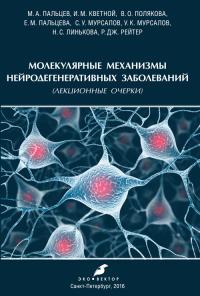Molecular mechanisms of neurodegenerative diseases: Lecture essays
Synopsis
In the monograph, various hypotheses of molecular and cellular mechanisms of development of neurodegenerative diseases are analyzed in detail, namely Alzheimer’s disease, Huntington's disease and Parkinson’s disease. From the perspective of neuroimmunoendocrinology which is an integral biomedical science, the prospects of using signal molecules synthesized in the central nervous system as biological markers for optimization of life-time diagnostics and targeted therapy of these diseases are considered. A modern methodology for studying the molecular mechanisms of neuronal death is described, which can be used to develop modern neuroprotective medications. Particular attention is paid to the authors’ pioneering research on the use of tissues available for biopsy (blood lymphocytes and buccal epithelium), for the life-time early diagnosis of neurodegenerative diseases. The book was based on lectures given by the authors in various medical and biological research university centers in Russia, Kazakhstan, Spain, Belgium, Portugal, and the United States.
The book is of interest to a wide range of specialists such as neurobiologists, neurologists, pathologists, histologists, psychiatrists, geneticists, researchers in the field of cellular and molecular biology.
Downloads




